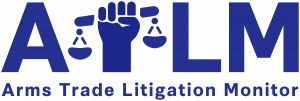Home > Case Overviews > Arms in Yemen at the European Court...
Arms in Yemen at the European Court of Human Rights
Jurisdiction
Europe
Locale
Armed Conflict in Yemen
Recipient State
Saudi Arabia, United Arab Emirates
Status
Ongoing
Following the dismissal of a criminal complaint brought in Italy against arms manufacturer RWM Italia S.p.A and senior officials of Italy’s National Authority for the Export of Armament (UAMA), victims of the 8 October 2016 airstrike in Deir Al-Ḩajārī, Yemen brought the case before the European Court of Human Rights (ECtHR). The case was brought in response to the Italian state’s failure to hold the aforementioned defendants accountable for the violation of their ‘right to life’. European Convention on Human Rights, Article 2
The complaint calls for the ECtHR to ensure that European states provide access to justice for victims of war crimes committed with weapons produced in and exported from Europe. It relies on the fact that the Italian state has not honoured its obligations under the ‘right to life’ by failing to investigate crimes of homicide and personal injury as well as not suspending the exports of weapons that could be used to commit war crimes and violate international human rights law, despite the public official’s awareness of the clear risk that such weapons could be used in violation of IHRL and IHL.
As of September 2023, this case is in its early stages and a decision on the admissibility of the application can be expected within a year.
Latest developments
Case Analysis
Unlike the other cases documented on this site that have been brought in domestic courts, the case brought before the ECtHR concerns the violation of the right to life as enshrined in the European Convention of Human Rights (ECHR) Article 2. It seeks to establish the responsibility of the Italian State for its failure to effectively investigate the criminal liability of corporate executives and senior public officials involved in arms transfers in the context of the Yemen war.
Cases
Case status
The complaint calls for the ECtHR to ensure that European states provide access to justice for victims of war crimes committed with weapons produced in Europe. The case has been brought in response to the Italian state’s failure to hold arms manufacturer RWM Italia S.p.a. and senior officials of Italy’s National Authority for the Export of Armament (UAMA) accountable for the violation of their right to life under Article 2 of the European Convention on Human Rights.
Key Case Documents
View all case documents20.07.2023
European responsibility for war crimes in Yemen – Complicity of RWM Italia and Italian arms export authority?
Read in fullTimeline
FILTERS
04 Jul 2023
Claimants submit application against Italy to the European Court of Human Rights alleging that the Italian state violated the 'right to life' under ECHR Article 2.
Read case report hereContact & More Information
If you would like to know more about this case, please get in touch with our primary contact Laura Duarte-Reyes (ECCHR) by email.
You can find out more about the work of the other claimants at their website:
Key
There has been a recent improvement in this thematic area
There has been a recent worsening of this thematic area



Analysis
20 July 2023
Italian-made bombs in deadly airstrike in YemenEuropean Centre for Constitutional and Human Rights (ECCHR)
This press release covers the submission of a complaint against Italy to the European Court of Human Rights, over the use of Italian-made bombs for an airstrike on the village Deir Al-Ḩajārī, Yemen in October 2016.
Read more